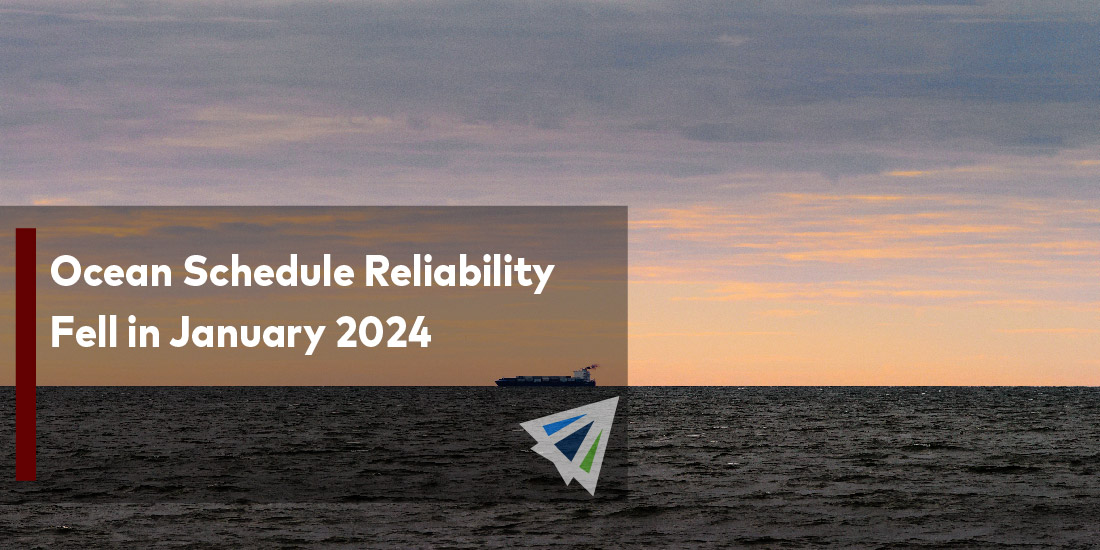The most recent results of Sea-Intelligence’s
Global Liner Performance (GLP) study, which includes data through January 2024, show an unsettling pattern in the dependability of ocean shipping schedules. The research provides a clear picture of the difficulties the sector will encounter in the first few months of 2024 by analyzing data from more than 60 carriers and across 34 trade routes.
Red Sea Unrest Slows Ocean Activity
There was a notable drop in the worldwide schedule reliability during ongoing events, such as
the unrest in the Red Sea. Dependability dropped sharply in January 2024, by -5.1 percentage points month over month, reflecting the decline seen in December 2023. This down the dependability score to a pitiful 51.6 percent. This decline represents the lowest number since September 2022 and points to a concerning trend for the maritime industry. The difficulties are exacerbated by the fact that January 2024 had a -0.8 percentage point drop year over year in comparison to the same time in 2023.
The growing backlog of late-arriving vessels is one of the major causes contributing to the reliability dilemma. The average delay increased to 6.01 days from 0.59 days in the previous month, mostly due to delays from round-of-Africa sailings. In addition to decreasing operational effectiveness, these delays add to the growing logistical challenges faced by companies that depend on prompt supplies.
The situation is still dire even if certain carriers were able to keep some form of dependability, with CMA CGM leading the field with a schedule reliability of 54.7 percent in January 2024. The bulk of carriers hovered between 40 percent and 50 percent dependability, with only few managing to break the 50 percent barrier. With a schedule dependability of 42.2 percent, Yang Ming proved to be the least dependable carrier, highlighting the numerous issues the sector faces.
The narrowing difference between the most and least dependable carriers—which hasn’t been since February 2023—is especially worrisome. This suggests a widespread decrease in performance, which reflects the structural issues that ocean transport companies are facing. The prospect for increasing schedule dependability is still dismal, with the Red Sea situation looming large and causing major interruptions on round-of-Africa sailings.
Moreover, the fact that none of the top 13 carriers have seen month-over-month increases in schedule dependability, and that only a small number of them saw year-over-year gains in January 2024, highlights the severity of the problems facing the sector. Improving operational resilience and tackling the underlying causes of schedule interruptions become critical imperatives as stakeholders struggle with growing uncertainty.
Uncertain Forecast for Future Ocean Shipping Reliability
To sum up, the results of Sea-Intelligence’s January 2024 GLP report present a dismal picture of the trustworthiness of ocean shipping schedules. The need to increase resilience and reduce risks has never been greater due to the growing challenges brought on by worldwide crises and operational interruptions. In order to steer the sector toward greater sustainability and dependability in the face of hardship, cooperation, creativity, and calculated actions will be essential.
Should you have any questions regarding this and how it could impact your shipments,
please reach out to our team today.
Additionally, we have our
weekly market updates that can provide you with relevant freight news, updates, developments across the industry, and more.

